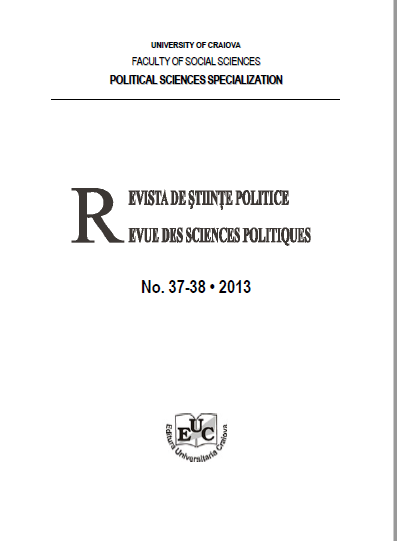An Inquiry into Geographical Identification and Occupational Status as Variables in Assessing Levels of Nostalgia
An Inquiry into Geographical Identification and Occupational Status as Variables in Assessing Levels of Nostalgia
Author(s): Roxana MarinSubject(s): Regional Geography, Evaluation research, Post-Communist Transformation, Socio-Economic Research
Published by: Editura Universitaria Craiova
Keywords: postcommunist nostalgia; geographical identification; occupational status; internally-generated factors; externally-generated factors; socio-economic status; reflective nostalgia;
Summary/Abstract: The present paper is an attempt to examine one of the most recurrent and multi-faceted phenomena in transitional, post-communist societies, i.e. the issue of nostalgia for the ancien régime and the repercussions and implications it generates and presupposes on particular spheres of the private life of individuals. The paper follows largely the norms and methodology of Anthony Jackson’s “anthropology at home” (1987), in order to address the impact of two variables – geographical identification and occupational status – upon the display of nostalgic sentiments among two samples in Romania – in Iași and Tecuci (Galați). Consequently, the main argument put forward is that, besides the typical causal explanations revolving around the age and social class variables, postcommunist nostalgia in Romania might be isolated in certain territorial contingencies and circumscribed to specific occupational categories. Starting from the fourfold classification advanced by Ekman and Linde (2002), the paper suggests that nostalgia should be approached from a socio-psychological, rather than a structural, perspective, and it does so by using empirical pieces of methodology (questionnaires, interviews, participative observation, official statistics).
Journal: Revista de Științe Politice. Revue des Sciences Politiques
- Issue Year: 2013
- Issue No: 37+38
- Page Range: 72-108
- Page Count: 37
- Language: English

